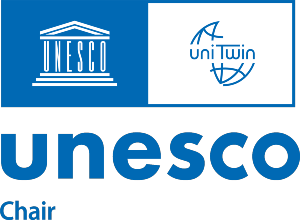Youth Social Innovation Lab (YSIL)
Project Summaries:
Soundsurfers
SoundSurfers is a programme created by Irish youth organisation, Foróige with the goal of empowering young people to express themselves by creating artistic projects through the medium of music technology. In creating a safe, dynamic, creative environment where young people are afforded the opportunity to demonstrate their own agency through creative aspects of music practice, the programme also facilitates relationship building, empathy and social connectedness between young people. Young people are engaged through a series of workshops where they are trained in music technology and facilitated to use the technology to develop their own creative ideas, such as podcasts, songwriting and performance. The programme also explores music as a vehicle for fostering global connectedness. Foróige is working on expanding and developing the programme, including developing a training package for youth workers and expanding the programme nationally in both online and face to face formats. The UCFRC is undertaking an evaluation of the programme, with a particular focus on the capacity of such programmes to promote understanding, empathy and civic behaviour among and between young people.
Research Team: Dr Bernadine Brady, Ms Rebecca Jackson
Activating Social Empathy Community module
A community-based version of the ASE model for use in youth work settings has been developed and is currently being piloted through Foroige. UCFRC researchers are undertaking to evaluate the pilot, adapted for online engagement to assess its effectiveness in non-formal context. The goals are to increase cognitive and affective empathy, improve interpersonal skills, promote prosocial behavior, increase social responsibility and promote positive social action. In particular, the evaluation will assess the potential for digital delivery and the potential for the module to be scaled internationally.
Research Team: Dr Charlotte Silke, Dr Bernadine Brady
Youth work during Covid-19
Covid-19 has had a serious impact on all sectors of society, including programmes and services working with young people. The restrictions occurring as a result of the global pandemic have placed considerable pressure on services across the globe to respond to human need while themselves experiencing unprecedented pressure including remote working, staff stress, etc. Because youth work generally takes place face to face in communities and involves both unstructured and structured activities (e.g., street work, youth clubs, one to one work), restrictions arising as a result of Covid-19 are likely to have had a significant impact on youth work practice. This study explores how one large national Irish youth work organisation, Foróige responded and adapted during the initial period of Covid-19 closures. Drawing on the perceptions of staff members, including management and senior youth workers, the study explores the specific actions the organisation has taken to respond to the Covid-19 crisis and the experiences of staff during this period. The learning from this study will be of value in terms of identifying the factors that enable youth serving organisations to be resilient in the face of crises, while providing insights regarding the possibilities and challenges relating to the delivery of online youth work services.
Research Team: Dr Bernadine Brady, Dr Aileen Shaw, Prof. Pat Dolan
Youth Initiated Mentoring
Youth Initiated Mentoring (YIM) is a new approach that brings together aspects of formal and natural mentoring. Within this participatory model, the young person nominates a natural mentor from their existing social network – possibly a relative, neighbour, family friend, former coach, teacher etc. The goal of the mentoring relationship is similar to formal mentoring: namely to support the young person to deal with challenges in his or her life and to become more resilient. The YIM model has been trialled in a small number of countries, including The Netherlands and the USA, and has shown positive outcomes. Foroige’s Big Brother Big Sister programme has recently adapted the model for use in an Irish context. In 2021-2022, a formative evaluation of the implementation and outcomes of the YIM approach in Ireland will be undertaken with a view to adding to the international body of evidence relating to this innovative new approach.
Research Team: Dr Bernadine Brady, Ms Rebecca Jackson
Online Mentoring
The Covid-19 crisis has placed enormous stress on young people in vulnerable families putting them at risk of, increased mental and physical health problems. The Covid-19 pandemic challenged youth mentoring organisations to consider ways in which young people in need of support could continue to receive it, while adhering to public health guidelines. There has been an increased focus on the use of online platforms to support youth mentoring relationships, an approach referred to as E‐mentoring (also referred to as electronic; virtual; digital; computer-assisted; or online mentoring). The Foróige BBBS programme in Ireland is partnering with BBBS Australia to pilot their online Mentoring platform - “OURSPACE”. This platform, which was built specifically for BBBS mentoring, was developed in partnership with the Disney Corporation in Australia. The platform leverages existing digital technology to bridge the geographical divide and build positive relationships online, especially for socially isolated young people. A qualitative study will be undertaken to explore the experiences of E-mentoring in an Irish context, with a view to informing the international body of evidence in this regard.
Research Team: Dr Bernadine Brady, Ms Rebecca Jackson







